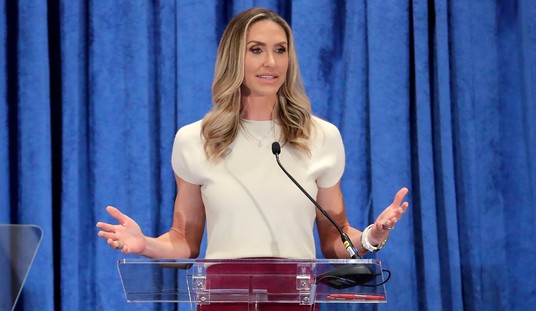The confirmation hearing for Judge Brett Kavanaugh’s nomination to the United States Supreme Court has been a freaking circus today, with liberal protesters causing frequent disruptions, attempting to smear Kavanaugh’s reputation with disingenuous insinuations, and general hysteria. Perhaps most insidious of all has been the constant drumbeat from Democratic Senators of their panicked worries about advancements in civil rights, as if Kavanaugh had been plotting his lifelong judicial career so he could use a position on the Supreme Court to impose racist, sexist, and otherwise discriminatory policies.
This attempted defamatory smear that Kavanaugh is some sort of sleeper agent bigot looks even more ridiculous when you consider Kavanaugh’s actual record and life history, but Democrat members of the Senate Judiciary Committee seem beyond the appeal of logic or shame.
Both Sen. Kamala Harris (D-CA) and Sen. Cory Booker (D-NJ), among others, used their remarks to comment that they were concerned about workers’, women’s, and minority rights, specifically mentioning issues like affirmative action and Brown v. Board of Education, the famous Supreme Court case that resulted in the desegregation of schools.
The message from the left is clear: conservative judges are racist, sexist, and hate poor people, and therefore even the most unhinged and hypocritical attacks are fair tactics, because they have to save America from the evil scourge known as Brett Kavanaugh.
Less than two months ago, they were freaking out because he likes beer and baseball, so I guess this is an upgrade, in that we are talking about actual issues now.
Seriously though, Democrats have been working furiously to avoid any mention of Kavanaugh’s actual life history, because the facts are devastating to their narratives?
How do you call Kavanaugh a racist when one of his favorite childhood memories is remembering watching his mother teach at a predominantly African-American school after “separate but equal” had been ruled unconstitutional?
How do you call him a sexist when he describes how proud he was of his mother’s “trailblazer” legal career and how much he appreciates the opportunities that Title IX provided for his daughters to participate in competitive sports?
How do you claim you don’t have enough information about how he would rule on cases when he’s authored 307 opinions and participated in deciding more than 2,000?
The facts can’t get in the way of the Democrats’ midterm election strategies or fundraising efforts. They know the majority of Americans will only see a few minutes soundbites from today’s hearings, maybe read a few tweets or an article or two, and won’t actually bother to read any of the legal opinions Kavanaugh actually wrote.
It’s much easier to attack a judge for being “anti-worker” because he issued a ruling for an employer than to actually look up the opinion and study the relevant law involved in the issues and do a true analysis. Not every case that is brought by a woman or a minority for discrimination, not every suit by a worker against their employer, not every case where a poorer person sues a richer person, should be won.
To offer an absurd example, if I demanded a million dollars per article to write here at RedState, and that was rejected, if I sued claiming discrimination and unfair labor practices the case would be tossed out very quickly. That wouldn’t mean that the court was “anti-worker” or “anti-woman” or anything like that. It would mean that the court was upholding the law and recognizing that my demand for a million dollars an article was ridiculous and I did not have a valid claim.
As Kavanaugh himself said today, he has ruled “sometimes for the prosecution and sometimes for criminal defendants, sometimes for workers and sometimes for businesses, sometimes for environmentalists and sometimes for coal miners…I am not a pro-plaintiff or pro-defendant judge. I am not a pro-prosecution or pro-defense judge. I am a pro-law judge.”
That’s exactly how it should be.
I’m not optimistic enough to expect many people to actually read any of Kavanaugh’s opinions, but do yourself a favor and at least read or watch the comments he made today. Hear from him in his own words about his life story, compare it to the narrative being pushed by the left this week, and decide for yourself.
Excerpts from the text of Kavanaugh’s opening statement remarks:
About his mother’s teaching experience at a predominantly African-American school in 1968:
I am here today with another of my judicial heroes … my mom. Fifty years ago this week, in September 1968, my mom was 26 and I was 3. That week, my mom started as a public-school teacher at McKinley Tech High School here in Washington, D.C. 1968 was a difficult time for race relations in our city and our country. McKinley Tech had an almost entirely African-American student body. It was east of the park. I vividly remember days as a young boy sitting in the back of my mom’s classroom as she taught American history to a class of African-American teenagers. Her students were born before Brown versus Board of Education or Bolling versus Sharpe. By her example, my mom taught me the importance of equality for all Americans—equal rights, equal dignity, and equal justice under law.
About his mother as an attorney, prosecutor, and judge:
My mom was a trailblazer. When I was 10, she went to law school at American University and became a prosecutor. I am an only child, and my introduction to law came at our dinner table when she practiced her closing arguments on my dad and me. Her trademark line was: “Use your common sense. What rings true? What rings false?” One of the few women prosecutors at the time, she overcame barriers and was later appointed by Democratic governors to serve as a Maryland state trial judge. Our federal and state trial judges operate on the front lines of American justice. My mom taught me that judges don’t deal in abstract theories; they decide real cases for real people in the real world. And she taught me that good judges must always stand in the shoes of others. The Chairman referred to me today as Judge Kavanaugh. But to me, that title will always belong to my mom.
About his daughters’ sports teams and Title IX:
For the past seven years, I have coached my daughters’ basketball teams. I love coaching. All the girls I have coached are awesome. And special congratulations to the girls on this year’s sixth-grade CYO championship team: Anna, Quinn, Kelsey, Ceane, Chloe, Alex, Ava, Sophia, and Margaret. I love helping the girls grow into confident players. I know that confidence on the basketball court translates into confidence in other aspects of life. Title Nine helped make girls’ and women’s sports equal, and I see that law’s legacy every night when I walk into my house as my daughters are getting back from lacrosse, or basketball, or hockey practice.
Comments on the rule of law and being impartial and fair:
For twelve years, I have been a judge on the U.S. Court of Appeals for the D.C. Circuit. I have written more than 300 opinions and handled more than 2,000 cases. I have given it my all in every case. I am proud of that body of work, and I stand behind it. I tell people, “Don’t read what others say about my judicial opinions. Read the opinions.” I have served with 17 other judges, each of them a colleague and a friend, on a court now led by our superb chief judge, Merrick Garland. My judicial philosophy is straightforward. A judge must be independent and must interpret the law, not make the law. A judge must interpret statutes as written. A judge must interpret the Constitution as written, informed by history and tradition and precedent. In deciding cases, a judge must always keep in mind what Alexander Hamilton said in Federalist 83: “the rules of legal interpretation are rules of common sense.”
A good judge must be an umpire—a neutral and impartial arbiter who favors no litigant or policy. As Justice Kennedy explained in Texas versus Johnson, one of his greatest opinions, judges do not make decisions to reach a preferred result. Judges make decisions because “the law and the Constitution, as we see them, compel the result.” Over the past 12 years, I have ruled sometimes for the prosecution and sometimes for criminal defendants, sometimes for workers and sometimes for businesses, sometimes for environmentalists and sometimes for coal miners. In each case, I have followed the law. I don’t decide cases based on personal or policy preferences. I am not a pro-plaintiff or pro-defendant judge. I am not a pro-prosecution or pro-defense judge. I am a pro-law judge.
As Justice Kennedy showed us, a judge must be independent, not swayed by public pressure. Our independent Judiciary is the crown jewel of our constitutional republic. In our independent Judiciary, the Supreme Court is the last line of defense for the separation of powers, and the rights and liberties guaranteed by the Constitution.
The Supreme Court must never be viewed as a partisan institution. The Justices on the Supreme Court do not sit on opposite sides of an aisle. They do not caucus in separate rooms. If confirmed to the Court, I would be part of a Team of Nine, committed to deciding cases according to the Constitution and laws of the United States. I would always strive to be a team player on the Team of Nine.
Follow Sarah Rumpf on Twitter: @rumpfshaker.













Join the conversation as a VIP Member